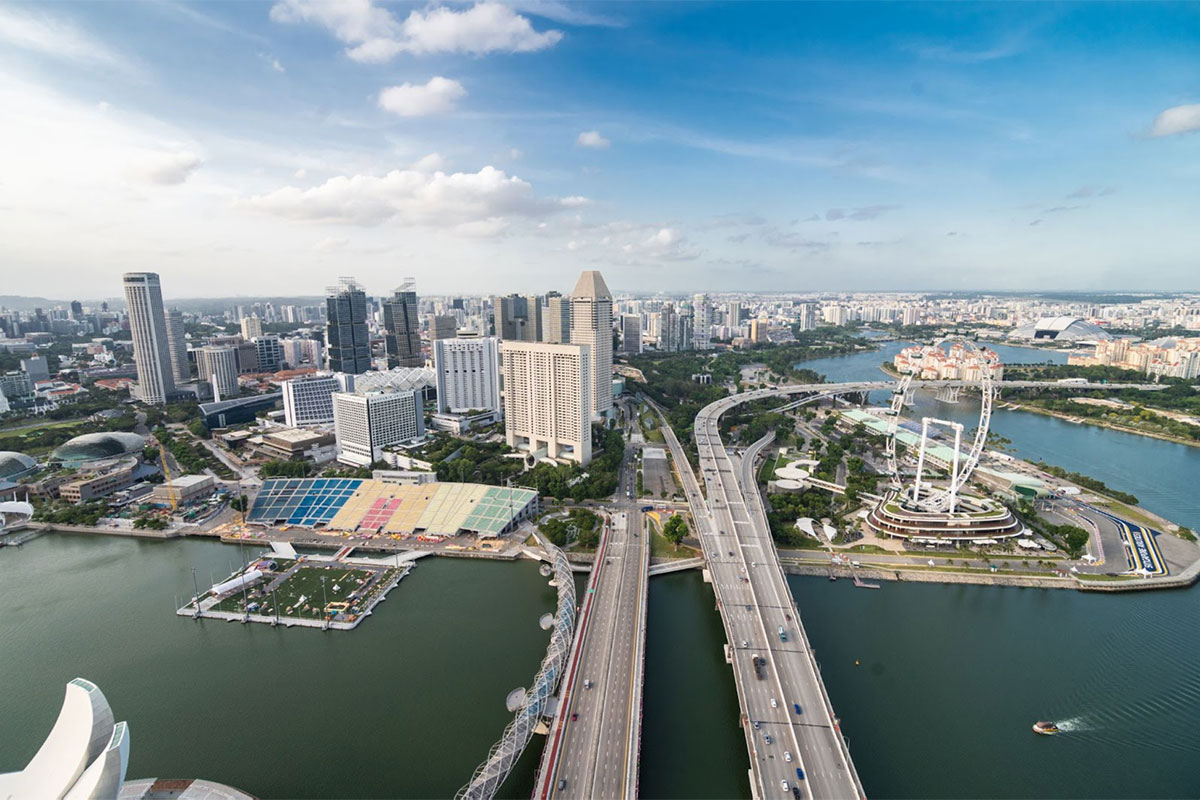Singapore’s dynamic economy, transparent governance, and reputation as a regional hub continue to make it a magnet for global investors and entrepreneurs. The city-state offers fertile ground for a variety of ventures, ranging from e-commerce and green technology to professional services and real estate.
As of today, with extensive government support, easy business incorporation, and proximity to major Asian markets, Singapore is not just a gateway to Southeast Asia—it is a high-potential market in its own right. This guide explores the most profitable sectors, practical setup requirements for foreign investors, and Singapore’s unique advantages as a destination for both startup founders and high-value investors.
Key Takeaways
- Singapore offers a resilient business environment with transparent regulations, low corporate taxes, and easy incorporation processes, bolstered by proactive government support schemes.
- The most profitable business opportunities in 2025 include e-commerce, eco-friendly retail, technology-driven services, health and fitness solutions, and property ventures.
- Sustainability, digitisation, and demographic shifts are driving consumer behaviour and shaping the future of entrepreneurship in Singapore.
- Small-scale service businesses like social media consulting, cleaning services, and event planning are thriving due to rising demand and low entry barriers.
- Foreign investors can choose from flexible business structures, enjoy robust legal protections, and benefit from dispute resolution mechanisms backed by international credibility.
Why Singapore Remains a Top Choice for Entrepreneurs

Singapore has consistently ranked among the most business-friendly countries in the world, thanks to its strong legal framework, economic openness, and regulatory efficiency. Foreign investors benefit from low corporate tax rates, no capital gains tax, and an efficient digital infrastructure that streamlines administrative processes.
The country’s location in the heart of Southeast Asia offers direct access to over 650 million consumers in the ASEAN market. The incorporation process is straightforward and can be completed online via ACRA’s BizFile+ portal in as little as one day. Moreover, Singapore’s status as a global financial centre, along with its network of over 90 Double Taxation Avoidance Agreements (DTAs), makes it particularly attractive to international firms looking to expand in the region.
A defining feature of Singapore’s appeal is the government’s proactive support for innovation and entrepreneurship. Through initiatives like Startup SG, the Productivity Solutions Grant (PSG), and the Enterprise Development Grant (EDG), businesses can access funding, training, and digital solutions tailored to their growth stage. Singapore is also investing heavily in its future economy, with the Research, Innovation and Enterprise (RIE2025) plan allocating S$25 billion to advance innovation and R&D capabilities.
Understanding Business Structures for Foreign Investors
Foreign investors can fully own and operate companies in Singapore, though there are specific regulatory requirements depending on the chosen business structure. A Private Limited Company (Pte Ltd) is the most common setup for startups and SMEs. It offers limited liability, tax advantages, and is treated as a separate legal entity. Foreign ownership of 100% equity is allowed under this structure, but at least one director must be a locally resident individual—either a Singaporean citizen, permanent resident, or EntrePass holder.
Other structures include branch offices, which function as extensions of foreign parent companies but require a local authorised representative, and subsidiaries, which are locally incorporated and treated as Singapore tax residents. There’s also the option of setting up a Representative Office, which is suitable for foreign firms conducting market research but does not permit revenue-generating activities.
Foreign entrepreneurs who wish to relocate and manage the business from Singapore can apply for the EntrePass, a work visa designed for innovative business ventures. More information is available through Enterprise Singapore and ACRA’s official portals.
Profitable Business Ideas in E-Commerce
Singapore’s e-commerce sector continues to thrive, with projections suggesting it will exceed S$7 billion in revenue by 2025. The rise in digital consumption, driven by a tech-savvy population and mobile-first culture, creates fertile ground for online businesses. Entrepreneurs can leverage local and regional platforms like Shopee, Lazada, Qoo10, and Shopify to quickly establish an online presence.
Low entry costs and simplified logistics services make it easy to start selling without the need for a physical storefront. One particularly popular model is dropshipping, which allows entrepreneurs to sell products without managing inventory. This model reduces financial risk and overhead, while enabling business owners to focus on marketing and customer experience. Integration with global platforms like AliExpress and local delivery services offers efficiency and scale, even for new entrants. Payment systems such as PayNow and Stripe facilitate seamless transactions, adding to the ease of doing business in the digital space.
Growing Demand for Service-Based Businesses
Service-based businesses are flourishing in Singapore, thanks to a rising population of busy professionals, dual-income households, and a growing expat community. Social media management is one such service in high demand, as companies increasingly invest in digital marketing to maintain brand relevance.
According to the 2024 We Are Social report, over 88% of Singaporeans actively use social media, underscoring the need for businesses to maintain a strong online presence. This creates a continuous demand for specialists who can manage platforms, develop content strategies, and use analytics tools to improve performance.
Cleaning services have also experienced sustained growth, especially after COVID-19 heightened awareness of hygiene. With NEA licensing available and minimal capital requirements, this sector offers low-barrier entry and steady demand from both residential and commercial clients. Delivery services, personal repair businesses, and event support are other high-growth areas catering to the needs of an increasingly convenience-driven society.
Sustainability and Green Business Opportunities

Singapore’s Green Plan 2030 has created substantial momentum for environmentally conscious business ideas. With growing consumer preference for sustainable goods and a regulatory push toward greener operations, opportunities abound in eco-friendly retail, consulting, and renewable energy. A recent survey by Channel News Asia found that 58% of Singaporeans are willing to pay more for sustainable products, indicating clear market demand.
Eco-focused businesses can explore retailing sustainable products made from biodegradable or recycled materials. Establishing an online store with a clean, informative website and strong branding appeals to this niche yet growing segment of the market. Another emerging space is solar energy. The SolarNova initiative, led by the Energy Market Authority, aims to increase national solar capacity to 2GWp by 2030. Entrepreneurs can venture into solar panel installations, energy consultancy, or green retrofitting services for residential and commercial buildings.
Technology-Led Ventures
Singapore’s transformation into a Smart Nation has positioned it as a hub for tech-based businesses. From IT support services to automation and AI-driven applications, technology continues to play a central role in economic development. SMEs across sectors often outsource their IT needs, including cybersecurity, cloud migration, and infrastructure maintenance, creating consistent demand for reliable service providers. These services benefit from support programs such as IMDA’s Digital Leaders Programme, which helps companies enhance digital capabilities.
In the field of robotics, Singapore leads globally with the highest industrial robot density. The government actively funds robotics and automation initiatives through agencies like A*STAR, providing research grants and commercialisation support. These advances make Singapore a fertile ground for startups focused on industrial automation, warehouse robotics, and smart manufacturing solutions.
Creative and Freelance Opportunities
The shift towards digital and remote work has created robust demand for freelancers and creatives. Graphic designers, content creators, and web developers enjoy strong opportunities, particularly as startups and SMEs seek cost-effective ways to develop a digital footprint. Platforms such as Glints and Workana help freelancers find local gigs, while digital infrastructure allows them to work seamlessly from anywhere.
Freelance writers who specialise in content marketing, SEO, or brand storytelling are increasingly valued by brands looking to improve online visibility. Similarly, web developers who can deliver responsive, well-optimised websites are in high demand across industries. These roles offer both flexibility and strong income potential for individuals who want to build their careers independently.
Health and Wellness Industry

The health and wellness sector is expected to exceed S$5 billion in value by 2025, supported by growing interest in fitness, nutrition, and mental well-being. Personal training services remain popular, with urban consumers seeking customised coaching that fits their schedules and goals. Digital platforms and apps are enabling trainers to reach clients virtually, expanding their market and improving scalability.
Setting up boutique fitness studios, yoga centres, or hybrid wellness spaces is also a promising venture. Though initial investments can be significant—averaging S$22,000 to S$30,000 for equipment and rent—locations near business hubs or residential enclaves can generate high foot traffic. Holistic offerings that combine physical training with nutrition advice or mental wellness programs are likely to gain traction among urban dwellers.
Opportunities in Real Estate and Property Management
Singapore’s real estate sector continues to show resilience, supported by demand from HDB upgraders, foreign investors, and family offices. Executive condominiums and resale private properties remain particularly attractive due to their relative affordability and limited new housing supply. The government’s management of land sales through the Government Land Sales (GLS) programme ensures market stability, protecting long-term investment value.
Real estate entrepreneurs can explore services in property management, leasing, and smart-home integration. Demand is really strong in areas popular among expatriates and professionals, making it a lucrative sector for agencies that provide personalised service and value-added support.
Event Planning and Coordination

Singapore’s vibrant MICE (Meetings, Incentives, Conferences, and Exhibitions) industry is recovering rapidly post-COVID, with strong demand for both corporate and personal event management. The return of weddings, product launches, and hybrid business events is driving demand for skilled event planners.
Entrepreneurs with strong organisational, communication, and budgeting skills can carve a niche in this space. Niche services like wellness retreats, themed parties, and cultural festivals are also gaining popularity, creating room for innovation within the industry.
Consulting as a Scalable Business Model
As the startup and SME landscape in Singapore matures, the demand for specialised consulting services is growing. Entrepreneurs with experience in areas such as IT, HR, digital transformation, finance, or logistics can establish consulting businesses that provide targeted solutions to growing companies. With Enterprise Singapore offering support for business improvement and market expansion, consultants can also tap into public sector demand for innovation and capacity-building.
Consulting is especially appealing because of its low overheads and high scalability. However, building credibility, gathering case studies, and understanding client pain points are essential for long-term success in this space.
Legal Protections and Dispute Resolution
Singapore’s legal system provides strong protection for businesses and investors. Contracts are enforceable, intellectual property is safeguarded under strict regulations, and dispute resolution mechanisms are internationally recognised. The Singapore International Arbitration Centre (SIAC) is a leading venue for cross-border commercial arbitration and is frequently used by multinational corporations to resolve disputes swiftly and fairly.
These legal guarantees create a secure operating environment for foreign investors and are among the most cited reasons why global businesses choose Singapore as their Asian headquarters.
Foreign Startup Success in Singapore
Several foreign-led ventures have successfully scaled their businesses in Singapore, illustrating the country’s robust support system and openness to international talent. For instance, Nium, a global payments startup originally founded by Indian entrepreneurs, chose Singapore as its headquarters and has grown into a major fintech player.
Funding Societies, a regional lending platform, started in Indonesia but established a strong presence in Singapore, taking advantage of the country’s pro-fintech regulations. These examples show that the ecosystem—comprising accelerators like Antler, grants from Enterprise Singapore, and startup-friendly policies—supports the ambitions of foreign entrepreneurs who are looking to tap into Asian markets.
Set Up Your Business in Singapore
Singapore remains one of the most fertile environments in Asia for launching a new venture in 2025. Its economic stability, supportive government, and innovation-driven culture make it a compelling destination for both entrepreneurs and high-value investors.
For investors ready to take the next step, working with the right local partner like InCorp can make all the difference. We offer comprehensive support for foreign entrepreneurs, ranging from company incorporation and regulatory compliance to visa processing and ongoing business administration. You focus on growth while we handle the groundwork. With deep knowledge of local laws and cross-border operations, we help simplify the process of setting up and scaling a venture in Singapore, ensuring the business is built on a strong foundation from day one.
FAQs about Business Opportunities in Singapore
Can foreigners own a business in Singapore?
- Yes, foreigners can own 100% of a Singapore-registered company. However, a local director is required. You can also apply for the EntrePass if you intend to operate the business locally.
Which industries are most promising for investment in 2025?
- E-commerce, green energy, digital consulting, health and wellness, and real estate are expected to see continued growth.
How do I register a company in Singapore?
- You can register a business in Singapore through a corporate services provider such as InCorp. We can assist you throughout the process and ensure that you meet all compliance requirements.


